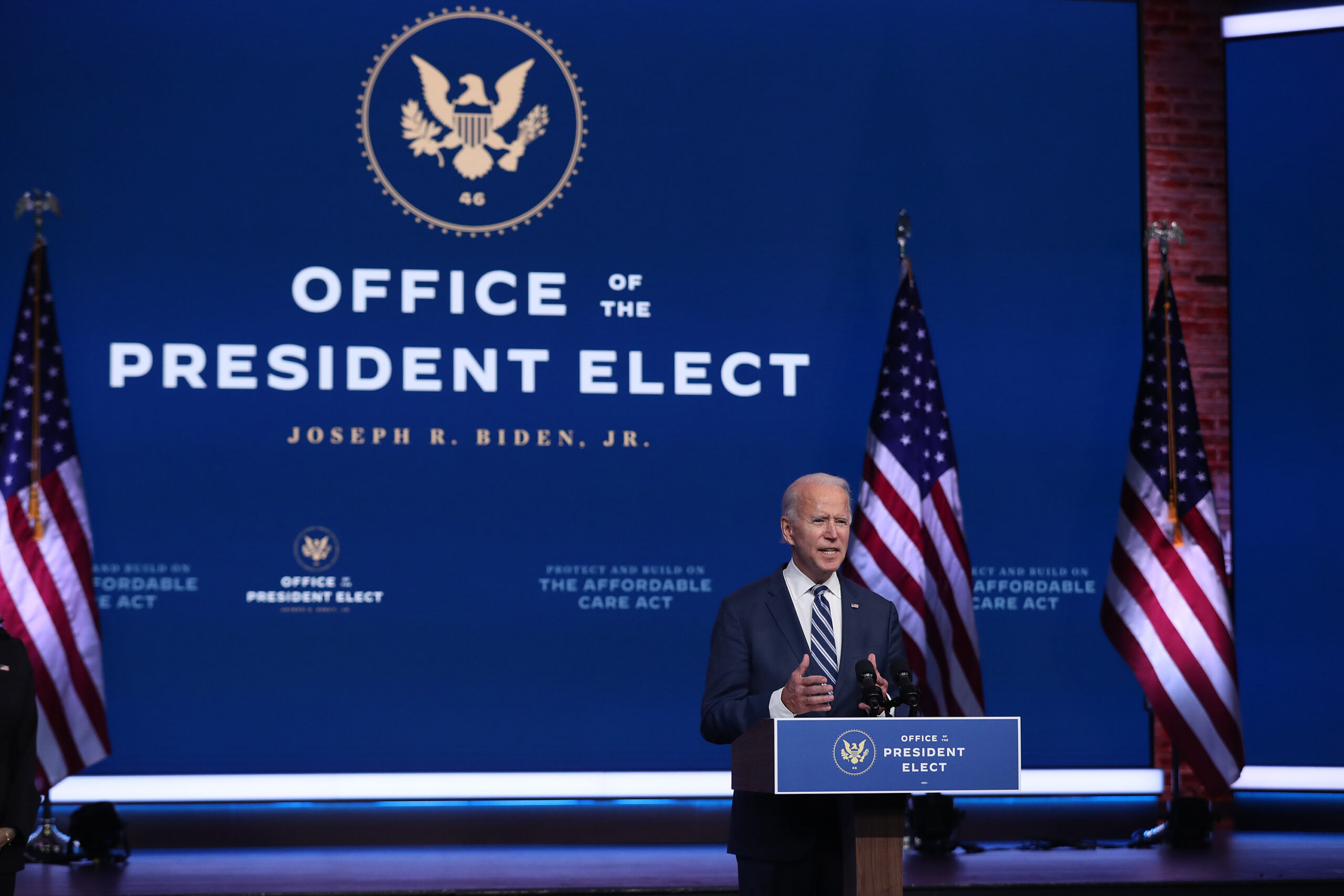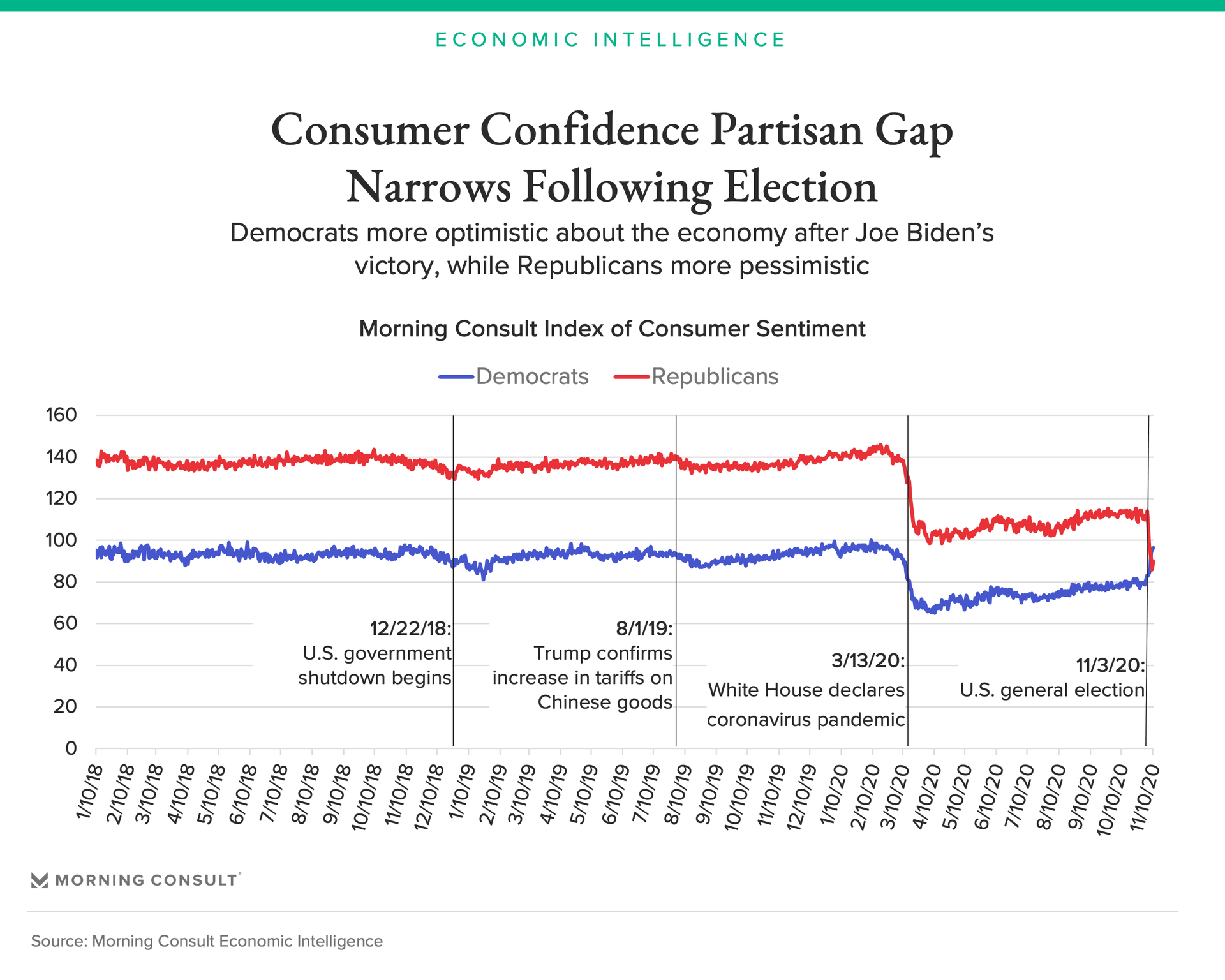Post-Election U.S. Consumer Confidence Dips as Drop Among GOP Outpaces Rise Among Democrats

- U.S. consumer confidence fell in the wake of the 2020 election, as confidence among Republicans fell more sharply than it rose among Democrats. Morning Consult’s daily U.S. Index of Consumer Sentiment reads 90.64 as of Nov. 10, down 1.42 points from last week. The decrease in confidence can be attributed to different reactions to the election results, as first identified in the immediate aftermath of the election. Confidence has fallen more among Republicans than it has increased among Democrats, leading to a net decrease in confidence, consistent with earlier forecasts that “partisan shifts in consumer confidence following the election are likely to be at least partially offset by counterbalancing shifts among consumers of the opposite party.”
- Democrats are now more optimistic about the economy and their personal finances than Republicans for the first time in the history of this dataset. On Nov. 8, the single-day, unsmoothed ICS among Democrats was 94.1, compared to 91.6 among Republicans. The election erased the gap in confidence that has existed since at least Jan. 1, 2018, and one that has persisted through the government shutdown in late 2018, the trade war with China in 2019 and the onset of the coronavirus pandemic earlier in 2020.
- Partisan-driven changes in the ICS are set to stabilize. Tuesday marks the first day since the election when confidence among Republicans increased, indicating that political partisanship is less likely to influence consumer confidence going forward. However, once consumers across the political spectrum re-establish their new levels of steady state confidence, increases in the spread of the coronavirus in the United States are likely to exert additional downward pressure on consumer confidence in the coming weeks, similar to the current situation in Europe.

John Leer leads Morning Consult’s global economic research, overseeing the company’s economic data collection, validation and analysis. He is an authority on the effects of consumer preferences, expectations and experiences on purchasing patterns, prices and employment.
John continues to advance scholarship in the field of economics, recently partnering with researchers at the Federal Reserve Bank of Cleveland to design a new approach to measuring consumers’ inflation expectations.
This novel approach, now known as the Indirect Consumer Inflation Expectations measure, leverages Morning Consult’s high-frequency survey data to capture unique insights into consumers’ expectations for future inflation.
Prior to Morning Consult, John worked for Promontory Financial Group, offering strategic solutions to financial services firms on matters including credit risk modeling and management, corporate governance, and compliance risk management.
He earned a bachelor’s degree in economics and philosophy with honors from Georgetown University and a master’s degree in economics and management studies (MEMS) from Humboldt University in Berlin.
His analysis has been cited in The New York Times, The Wall Street Journal, Reuters, The Washington Post, The Economist and more.
Follow him on Twitter @JohnCLeer. For speaking opportunities and booking requests, please email [email protected]